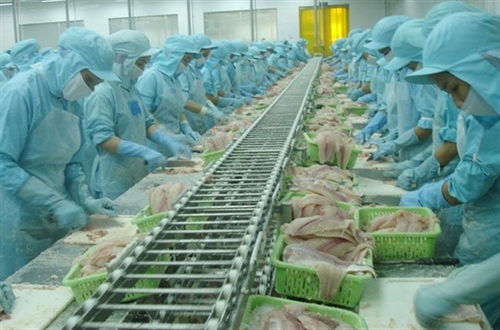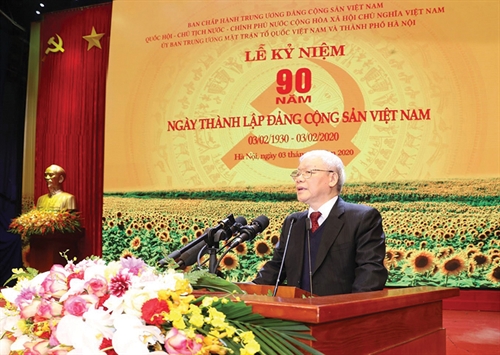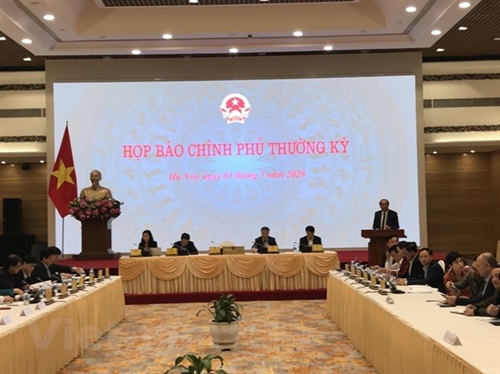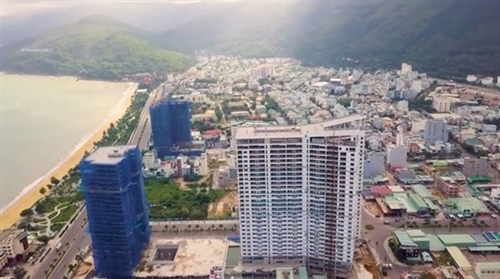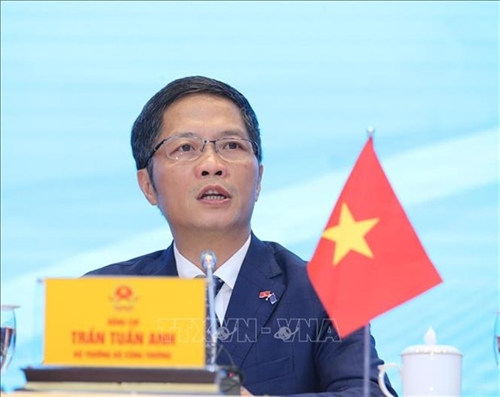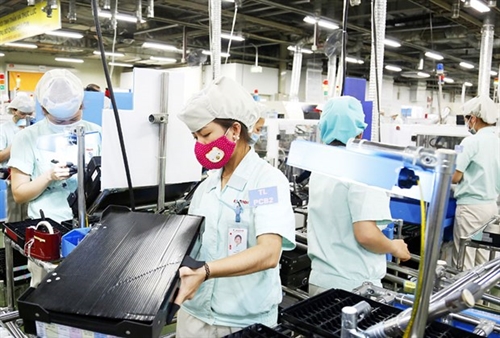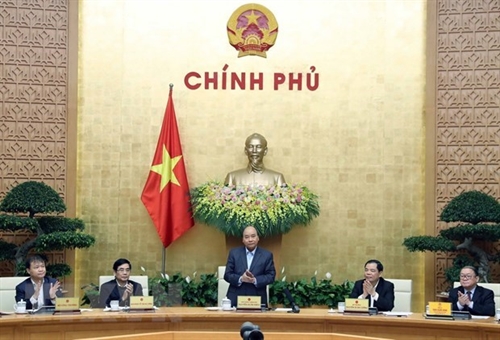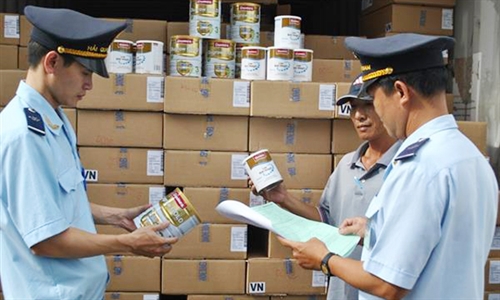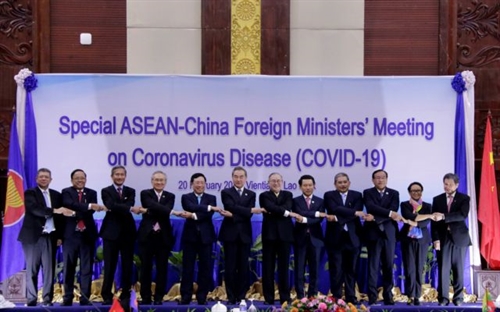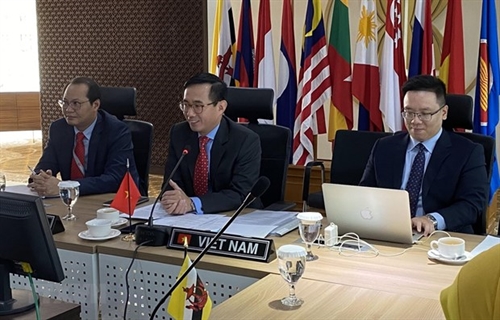Prime Minister Nguyen Xuan Phuc on February 3 signed a decree stipulating sanctions against those spreading fake news and rumors on social media amid a deluge of online misinformation about the novel coronavirus (SARS-CoV-2) in the country.
The Decree, coded 15/2020/ND-CP, which will take effect on April 15, specifies sanctions of administrative violations in the fields of post, telecommunications, radio frequency, information technology, and e-transactions.
Accordingly, a fine of VND 10-20 million (USD 430-870) will be imposed on people using social networks to provide and share fake, untruthful, distorted and slanderous information, hurting the prestige of agencies and organizations or honor and dignity of individuals.
This fine level will also be applied to those who share harmful news that causes public panic, arouses violence, or promotes gambling. Those sharing messages encouraging unsound customs and superstition, or describing details of horror, scary accidents, and criminal actions will face similar penalties.
Meanwhile, persons revealing state secrets, personal secrets or other secrets but their violations remain below the threshold for examination of penal liability will be subject to a fine of VND 20-30 million (USD 870-1,300).
In addition to the monetary penalties, violators will be forced to remove fake or confusing news posts.
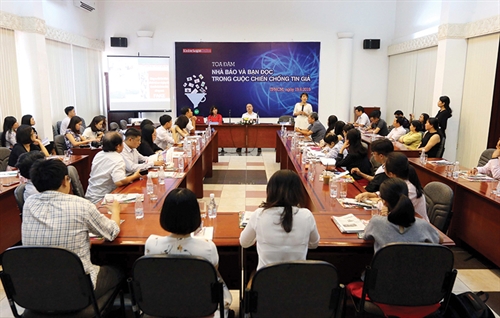 |
A talk discussing measures to fight fake news held in Ho Chi Minh City in June 2019__Photo: Thanh Vu/VNA |
| A talk discussing measures to fight fake news held in Ho Chi Minh City in June 2019__Photo: Thanh Vu/VNA |
Fake news may cause not only public anxiety…
The Law on Cyber Security, in effect since January 2019, prohibits the spreading of incorrect information which causes confusion among the people, damages socio-economic activities, creates difficulties for authorities and those on duty, or infringes upon lawful rights and legitimate interests of organizations and individuals. However, the Law does not stipulate specific sanctions against violators.
The Decree, designed to replace Decree 174 of 2013, is expected to provide authorities a legal tool to deal with these violations, especially in the context when the coronavirus outbreak stirs fear among the country and many social media users post untrue news about the epidemic, causing public panic and affecting people’s life.
In a recent interview with Soha.vn, doctor Nguyen Trung Cap, head of the National Hospital for Tropical Diseases’ Emergency Department - the place where most severe coronavirus disease patients are receiving care, admitted that he and his colleagues “are too tired and get exhausted because of fake news, sensational news stories and such quarrelsome things.”
“Perharps, in the world there is rarely any country where social networks are full of fake news and confusing information like Vietnam. These news and information are disturbing ones. Hence they thrust society in turmoil, raise unnecessary concerns or carelessness, and even create ridiculous trends,” doctor Cap gushed. “I have nothing more to say with such awful recommendations as drinking urine to treat coronavirus,” he added, stressing that false information will lead to many troubles.
Doctor Cap’s did not overstate about the situation. As reported by the Ministry of Public Security, by early February, 170 persons had been handled by authorities for spreading false information relating to the COVID-19 epidemic.
Ha Thi Le Nhan, 34, from Hue province in Central Vietnam, Tran Van Tung, 22, from southern Ba Ria-Vung Tau province, and Vu Thi Thanh, from the northern city of Hai Phong, had published Facebook posts about infected cases in their areas, while none of the localities has reported any patients of the novel coronavirus.
Nhan posted on her Facebook account on January 29 that “Hue has detected one SARS-CoV-2 infection case. The patient, a Chinese national from Wuhan, is now quarantined at Hue Central Hospital.” She also posted the same information on several Facebook groups. Nhan deleted all those posts in the same day but by then, the information had already caused confusion among many people.
In the same move, Tung posted on Facebook on January 27: “Le Loi Hospital in Vung Tau city (capital of Ba Ria-Vung Tau province) is putting two Chinese in quarantine as they are suspected to have been infected with the new coronavirus.” In 25 minutes, his post received 300 reactions, 400 comments and 600 shares. He only deleted the post after Le Loi Hospital denied the information and reported to the police. Tung admitted later that he heard the news from rumors.
As for Thanh, she wrote on her own Facebook account on January 26 that: “One suspected Wuhan pneumonia infection case has been found in Hai Phong and the patient is now quarantined at Viet Tiep Hospital.”
These three examples, which are reported in an article published in VnExpress, are among hundreds of cases of spreading malicious rumors about the epidemic.
Fake health information is extremely harmful, especially to adolescents who are often credulous about news on social networks.
N.D., 17, residing in Hanoi’s Son Tay town, posted a status on his Facebook account saying that Vietnam has found a vaccine that can stop coronavirus and it is ketamine. Vietnam would donate about 10 tons to China to help them stop the epidemic.
He explained that ketamine, after being put into the human body through the nose, will create a protective matrix covering the mouth and nose. The coronavirus would not be able to penetrate the body and soon die due to this protective matrix.
The post attracted many likes and comments from other users. At the police station, accompanied by his parents as guardians, D. admitted making up information to get attention.
It is worth mentioning that ketamine is a drug used to induce loss of consciousness, or anesthesia, in veterinary medicines and is used for some surgical procedures in humans. It can produce relaxation and relieve pain in humans and animals. However, it is also commonly abused as a “recreational” drug like ecstasy, due to its hallucinogenic, tranquilizing and dissociative effects. The drug has been banned in Vietnam. No one dare image what will happen if adolescents grasp the information and believe it is true.
Not only ordinary people but celebrities commit the act of sharing fake news.
On January 26, pop singer Dam Vinh Hung wrote on his Facebook page that two Chinese nationals died from coronavirus at Cho Ray Hospital.
On her Facebook account, actress Cat Phuong ran a status saying that “the epidemic has come to District 1 (of Ho Chi Minh City) and will probably spread to District 3, District 5, and District 7…”
On January 31, actress Ngo Thanh Van wrote on her two-million subscriber fan page that that there were still flights between Vietnam and China’s Wuhan City while the Civil Aviation Authority of Vietnam suspended all flights to and from the coronavirus-hit area earlier.
The three artists later gave apology to their fans. “I learned my lesson thanks to this incident,” singer Dam Vinh Hung wrote via Facebook, adding he would check news sources carefully before sharing information in future.
...but also economic damage
In January, local media reported that the People’s Committee of Ly Son island district in Quang Ngai province has asked the provincial Department of Public Security to identify a Facebook user who circulated a rumor that garlic grown in the island had been contaminated with pesticides.
Vice chairwoman of the People’s Committee of Ly Son district, Pham Thi Huong, told Việt Nam News that the rumor damaged the product and thousands of farmers living on the island.
A Facebook account with the name Luong Hoang Anh posted a message on February 5, saying garlic planted on Ly Son island was heavily contaminated with pesticides. The message also said the wells supplying water for garlic farms were contaminated and only garlic grown on An Binh islet (three miles from Ly Son island) was free from pesticide. The Facebook account user offered garlic from An Binh islet for VND 2.3 million (USD 100) per kilo whereas Ly Son garlic is often priced at VND 60,000 (USD 2.6) for a fresh kilo and VND 150,000 (USD 6.5) for a dried kilo.
According to Chairman of the People’s Committee of Ly Son district Nguyen Quoc Viet, such rumors are “completely untruthful and groundless” and adversely affecting the trademark of Ly Son garlic.
Deputy Director of the Quang Ngai Department of Public Security, Vo Van Phuong, said cybercrime police has been tracking the user after the rumor was posted on Luong Hoang Anh’s Facebook page.
The island district People’s Committee has been building a geographical indication (GI) for better protection of Ly Son garlic trademark.
The island, known as the kingdom of garlic in Vietnam, has 22,000 inhabitants, with farming garlic and spring onions being one of their main livelihoods.-
